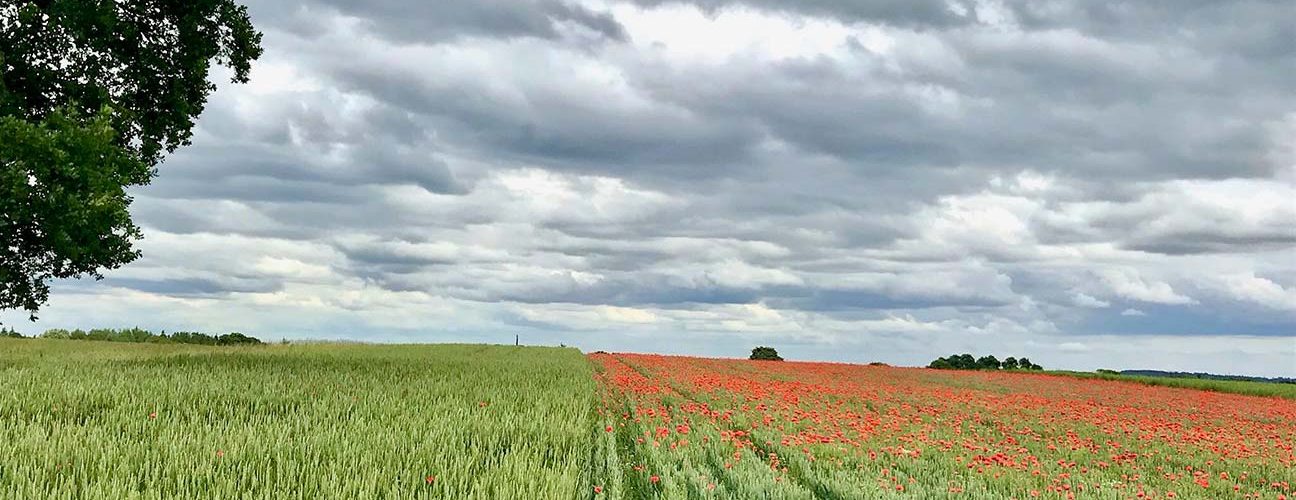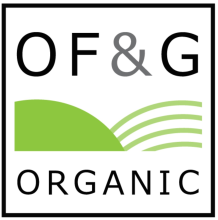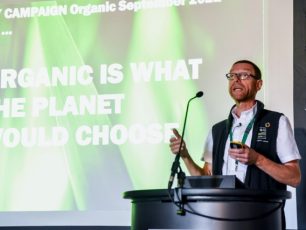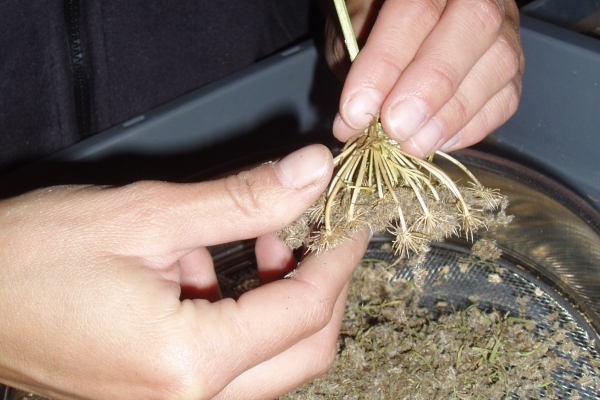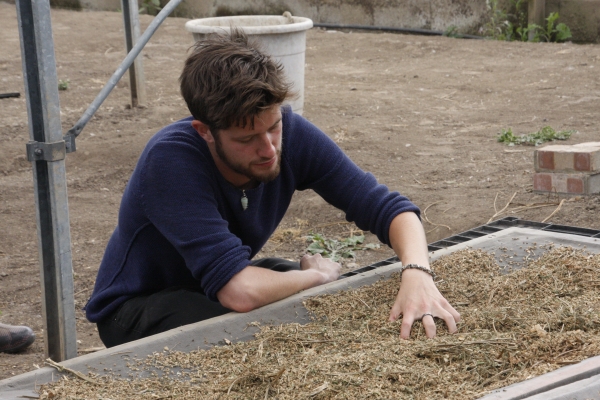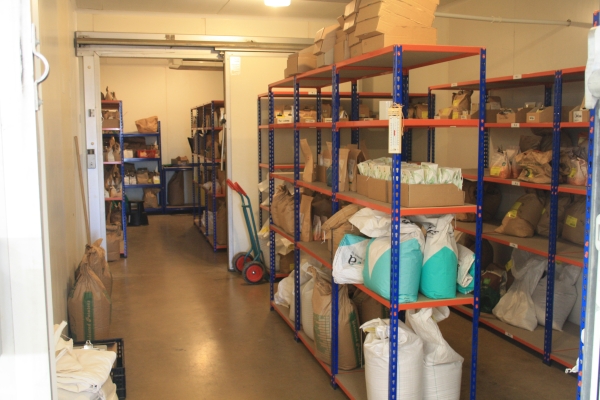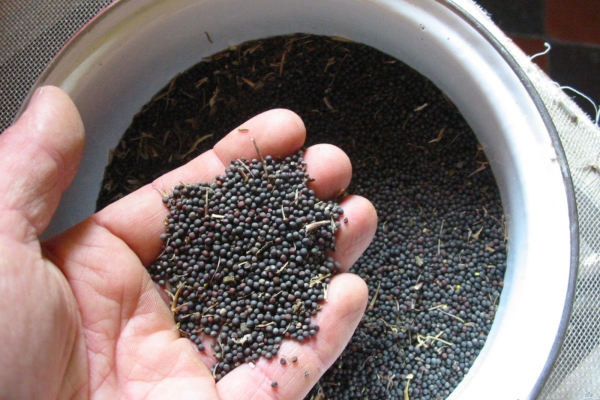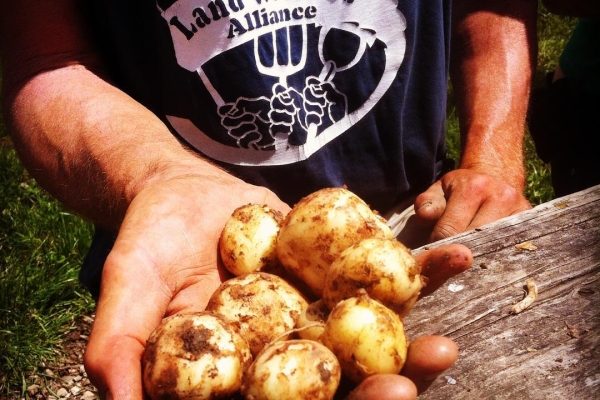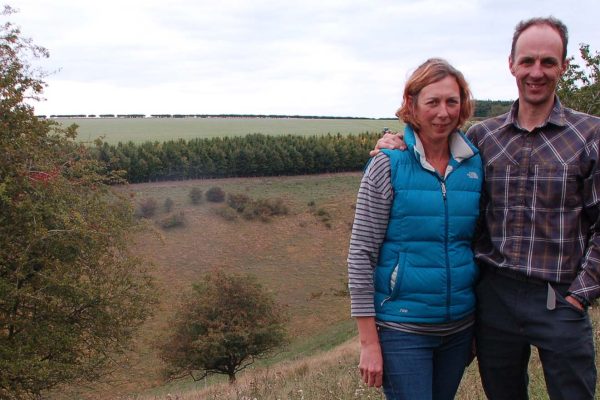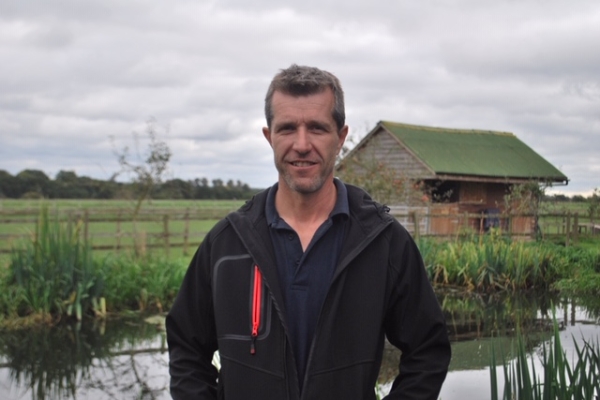Be Heard!… Reflections from a seed legislation workshop
On 12 February this year (2023) legal expert on seed and intellectual property Fulya Batur facilitated a session with Kate McEvoy (Real Seeds), Charlotte Bickler (Organic Research Centre), and myself. We presented our work to an audience at the brilliant Gaia Foundation Seed Gathering ‘Be Heard! Legislation Action Workshop.’
Across the UK farmers and growers, seed savers and breeders, bakers and millers, researchers and citizens who all share a common interest have been working together to help build seed breeding programmes that can offer more genetic diversity and greater grower control than those in current dominance of the plant breeding industry.
Rules is rules
If your job brings you into direct contact with seed breeders, growers and grain traders, then it is likely that you will have a reasonably good grasp of what the law currently requires and what activity can and cannot be carried out under Plant Variety Rights legislation. These rules are intended to ensure that almost all seed becomes certified and can then be distributed safely across the country and across international borders.
And the winner is…
But clearly not everything in the garden is rosy. There are gaps on supermarket shelves due in part to trade and border complexities, further exacerbated by political turmoil and extreme weather conditions in the growing season. Also, we’re seeing biological diversity recorded at alarming levels of degradation, and agricultural soils in desperately poor health. So now could be a good time to invite people to re-evaluate how food supply chains are constructed, what food systems can deliver, and what the impacts on all of us would be beyond the filling up of a shopping basket.
According to the United Nations Food and Agriculture Organisation (UN FAO), of the 6,000 plant species cultivated for food, just nine account for 66% of total crop production, and livestock production is based on 40 species with only a handful providing the vast majority of meat, milk and eggs. Of these, only a very few plant varieties are used in crop breeding programmes due to a specific focus on plant health reasons, and also quite often on cosmetic criteria. The primary goal has been high yield. In general, yield is what the farmer is paid for. Almost no commercial contracts stipulate food quality in terms of nutrition. As a result, most cereal plant varieties are selected on the basis of performing well (i.e. high yielding) in farming systems that rely heavily on the use of synthetic inputs, a stable climate, and with a mandate focused on producing a high volume of energy-dense foods.
Incidentally, the UN FAO also state that if food waste was a country, it would be the third highest emitter of greenhouse gases below only China and the US.
Why are we where we are?
Modern seed breeding is largely under the control of businesses owned by some of the largest corporations in the world. Therefore, any development is seen through the lens of generating income, building profits, and accumulating wealth. In itself this would not necessarily be problematic, until climate and biodiversity are taken full account of and we really start to look at moving to one side of the convention on how to produce food from seed.
The elephant in the room in many of the conversations we’ve had with people engaging in this area is ownership. While it is an acceptable economic model to protect crop variety development with a level of ownership under Intellectual Property law, this has not always been a positive experience for growers. And things appear to be tightening further. We are now seeing a rise in what in the industry are known as ‘buy-back’ contracts. These are where a grower can buy seed, but they don’t own it. They will be paid to grow it for somebody else, once the harvest is in. It can offer a route to short term economic stability for some growers, albeit on a very narrow pathway. But it is not risk-free and can lead to an increase in the number of growers who don’t own the seed growing in their own soil.
Historically the pattern of consolidation in the seed industry (recorded by Phil Howard, see the note below), shows parent companies getting bigger and swallowing up both the seed breeding houses and the businesses selling the synthetic inputs that they tell farmers their plant varieties need in order to grow. Seed breeding is an expensive business with years of development before a product is ready to go to market. On the other side however, sales of all the herbicides, fungicides, pesticides etc., that those varieties ‘need’ can be highly profitable.
Carry me, I will carry you
An increasing number of people and organisations are now working to turn at least part of that narrative into a very different story. The Gaia Foundation’s Seed Sovereignty Programme has supported many of us working in food and farming in forging new relationships and sharing fresh ideas on what we would like our seed system to do for us. Here is an excerpt for our advocacy paper – available online:
“In the UK and the wider European continent, the legal seed marketing framework was established in the 1960s to ensure seed quality and varietal identity of seeds for users, mostly farmers. In the 21st century, while the majority of arable farming has become more specialised and of increasing scale, focusing on commodity crops, and closer more collaborative food chains have also emerged. These offer important markets for smaller-scale producers, in parallel to conservation and breeding efforts to revive landraces and develop diverse and locally adapted plant populations. The demand for seed is changing, especially in organic, low-input, or associated types of agricultural production.”
I would like to end with the words of the late Professor Martin Wolfe and his long-term colleague Salvatore Ceccarelli (taken from https://wakelyns.co.uk/fromthegrave/):
“… Indeed it is widely acknowledged that agrobiodiversity is a key to food security and human health. In our view, it is unfortunate that in relation to both crop plants and livestock, concentration and investment has been focused on specific varieties and breeds rather than on the potential value of genetic complexity both within and among farms. One argument for monoculture development is that such crops can provide a continuous supply of a uniform feedstock for convenient and simplified large-scale production of a processed foodstuff. However, conventional baking tests and artisanal bakers and pasta makers have shown that populations can compete well with monocultures. Considering the increasingly unpredictable climatic conditions of the future and the higher stability and resilience of diversified crop stands under varying conditions, it is highly likely that more reliable qualities will emerge from adaptable populations made from carefully selected parents.”
Further reading
- Report from the 2019 OF&G organic conference where Small Food Bakery owner and UK Grain Lab co-founder Kimberley Bell led a team of gifted individuals to demonstrate the wonder that is Martin Wolfe’s YQ grain
- A short article from Via Campesina – Seed laws that criminalise farmers: resistance and fightback
- Useful detail from the group No Patents on Seeds
- Recent Changes in the Global Seed Industry and Digital Agriculture Industries
- Guidance from GOV.UK:
- Plant breeders’ rights give the breeder legal rights over the plant varieties they have developed and allow them to charge royalties for using these ‘protected’ varieties. If you are a breeder, this can provide funding for your work.
- In the UK, PBR are administered by the Plant Variety Rights Team in Cambridge which is part of the Animal and Plant Health Agency (APHA).
- FSS is seed planted on a farmer’s own land using seed harvested from their own holding. Your ‘own holding’ may have more than one farm, as long as all holdings are managed as the same business. By law, you cannot market, purchase, transfer or give seed from one business to another for subsequent re-planting.
Header image courtesy Mark Lea, (profiled on Agricology)
